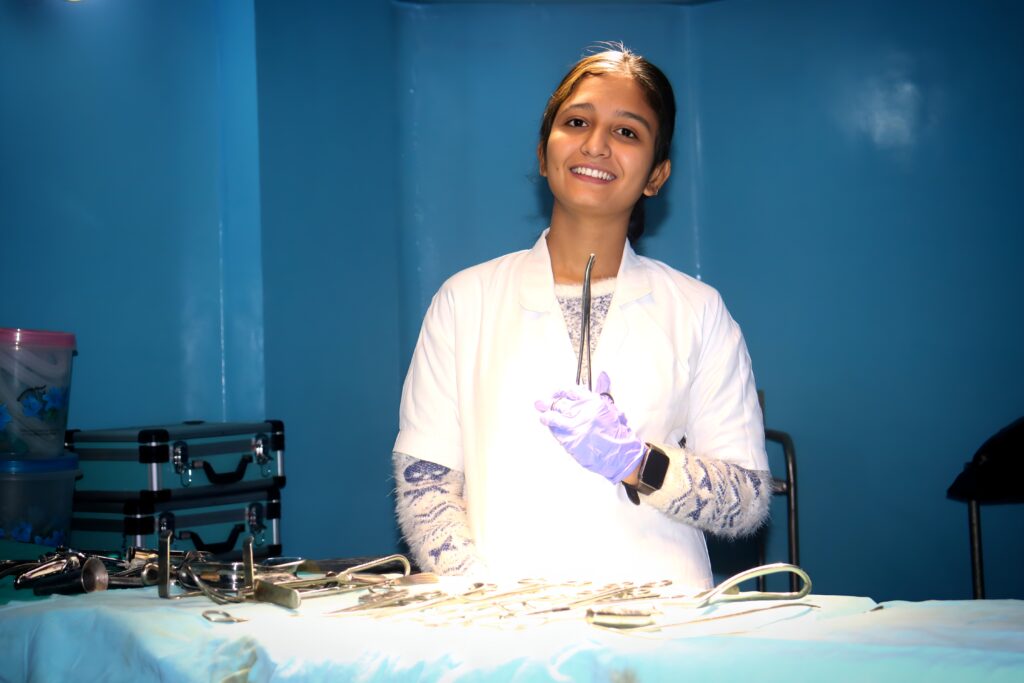GNM
General Nursing and Midwifery (GNM) Course at Victoria College of Nursing & Paramedical Science
Course Overview: The General Nursing and Midwifery (GNM) course is a foundational nursing program designed to prepare students for a rewarding career in nursing. This three-year diploma program focuses on comprehensive nursing care, midwifery, and maternal and child health, equipping graduates with the essential skills and knowledge to provide quality care in various healthcare settings.
Curriculum Highlights:

Core Subjects:
- Nursing Fundamentals: Basics of nursing practice, including patient care, hygiene, and health assessments.
- Anatomy and Physiology: Understanding the human body’s structure and functions, crucial for effective patient care.
- Microbiology: Study of microorganisms and their relevance in health and disease.
- Pharmacology: Introduction to medication management, including drug classifications and side effects.
Midwifery and Maternal Health:
- Specialized training in midwifery, covering prenatal, perinatal, and postnatal care, as well as newborn care.
Community Health Nursing:
- Focus on public health principles, health promotion, and disease prevention strategies within the community.
Clinical Practice:
- Hands-on clinical training in hospitals, community health centers, and maternity wards, enabling students to apply theoretical knowledge in real-life scenarios.
Mental Health Nursing:
- Introduction to mental health concepts, helping students understand and address the psychological needs of patients.
Emergency Nursing:
- Training to provide care in emergency situations, including trauma management and critical care.
Course Duration
The GNM program typically spans three years, divided into six semesters. Each semester includes a mix of theoretical coursework and practical training, ensuring a well-rounded educational experience.
Job Opportunities After GNM
Graduates of the GNM program have numerous career opportunities in the healthcare sector. Some potential job roles include:
Staff Nurse:
- Work in hospitals, clinics, and healthcare facilities, providing direct patient care and support.
Community Health Nurse:
- Focus on public health initiatives, educating communities about health practices and disease prevention.
Midwife:
- Provide care to pregnant women during labor and delivery, as well as prenatal and postnatal care.
School Nurse:
- Work in educational institutions, promoting student health, managing health screenings, and addressing health concerns.
Nursing Assistant:
- Support registered nurses in providing patient care, assisting with daily activities, and monitoring patient health.
Home Health Nurse:
- Provide nursing care to patients in their homes, focusing on rehabilitation and chronic illness management.
Emergency Room Nurse:
- Work in emergency departments, providing critical care to patients in urgent situations.
Industrial Nurse:
- Provide healthcare services within industrial settings, focusing on occupational health and safety.
Research Nurse:
- Participate in clinical research studies, assisting with data collection and patient care related to research protocols.
Travel Nurse:
- Take on temporary nursing assignments in various locations, providing flexibility and diverse experiences.
Conclusion
The GNM course at Victoria College of Nursing & Paramedical Science provides a strong foundation for a successful nursing career. With a focus on comprehensive patient care, midwifery, and community health, graduates are well-equipped to meet the demands of the healthcare industry and make meaningful contributions to patient care and public health.
